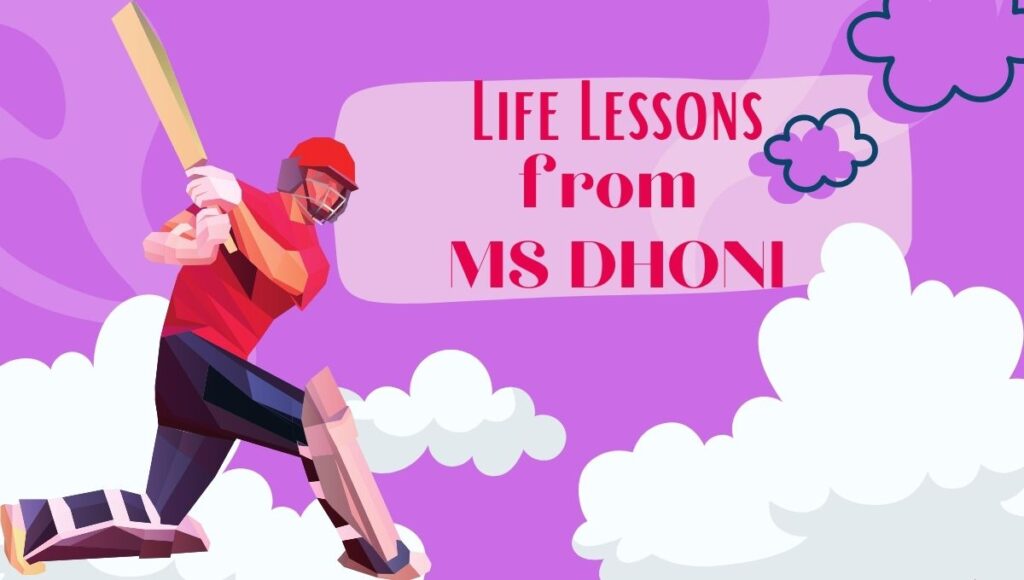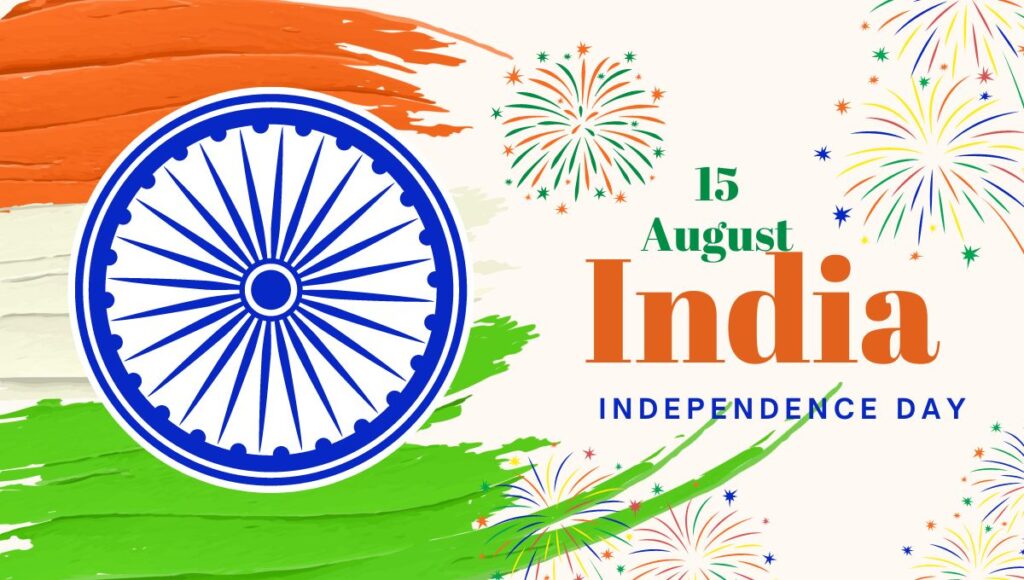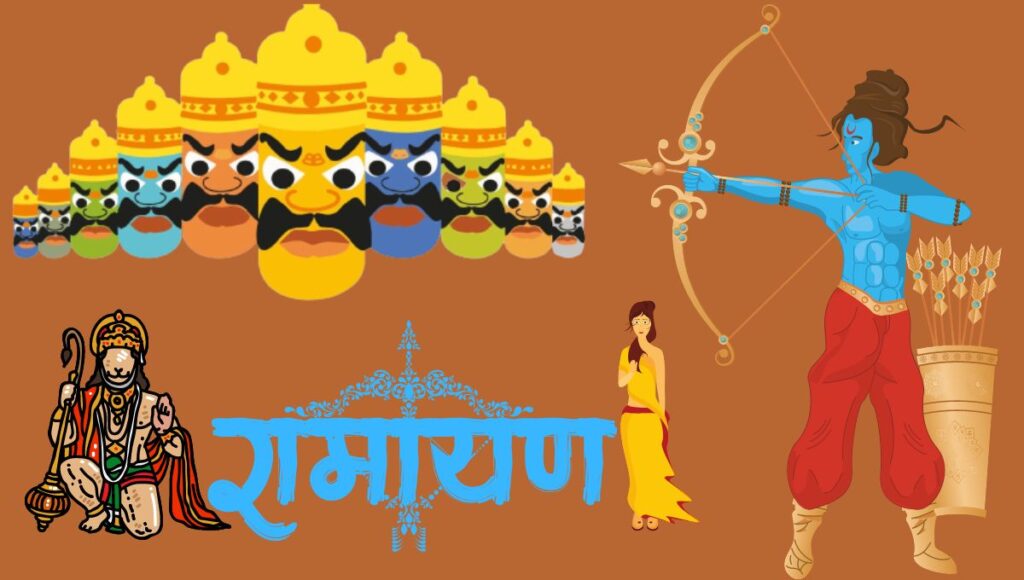How Bhagvad Geeta Changed My Life: A Personal Story of Transformation & 10 Powerful lessons to learn
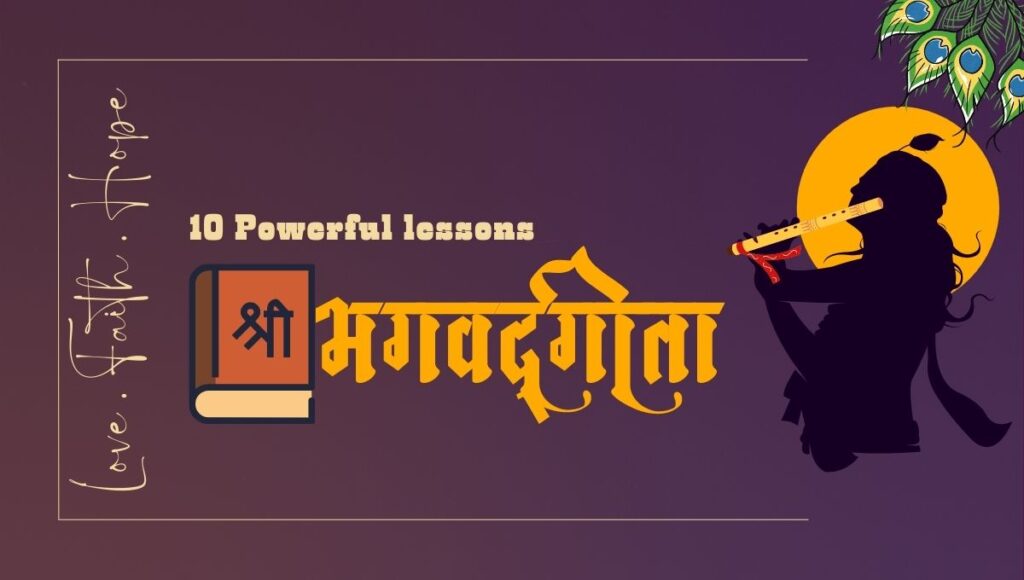
Have you ever felt lost, confused, or unhappy in your life? Have you ever wondered what is the purpose of your existence, or what is the best way to live? If you have, then you are not alone.
I have been there too. I was once a person who had no direction, no passion, and no joy in my life. I was struggling with various problems, such as stress, anxiety, depression, low self-esteem, and lack of motivation. I felt like I was living in a dark and hopeless world, where nothing made sense.
But then, something amazing happened. Something that changed my life forever. Something that gave me a new perspective, a new attitude, and a new way of living. Something that made me happy, peaceful, successful, and fulfilled.
What was that something? It was Bhagvad Geeta.
Bhagvad Geeta is one of the most sacred and influential scriptures in Hinduism. It is a dialogue between Lord Krishna and Arjuna, who is facing a dilemma of whether to fight or not in a war against his own relatives. Lord Krishna teaches Arjuna the essence of life, the nature of the self, the supreme reality, and the path of duty, action, devotion, and knowledge.
Bhagvad Geeta is not just a religious text, but a universal guide for anyone who wants to live a meaningful and fulfilling life. It is a source of wisdom, inspiration, and practical advice that can help anyone overcome their challenges and achieve their goals.
In this blog post, I will share with you my personal story of how Bhagvad Geeta changed my life for the better. I will also share with you the 10 powerful lessons that I learned from Bhagvad Geeta that can transform your life too.
Are you ready to discover the secrets of Bhagvad Geeta? Then let’s get started!
How did I start reading Bhagvad Geeta?
I was introduced to Bhagvad Geeta by my grandmother when I was a teenager. She was a devout Hindu who used to read Bhagvad Geeta every day and recite its verses by heart. She always told me that Bhagvad Geeta was the best book ever written and that it had all the answers to life’s questions.
I was curious about what she said, but I never really paid much attention to it. I thought it was just another religious book that had nothing to do with me or my life. I was more interested in other things, such as movies, music, games, and friends. I thought those were the things that would make me happy and successful.
But as I grew older, I realized that those things were not enough. They could not fill the emptiness in my heart or solve the problems in my mind. They could only give me temporary pleasure or distraction, but not lasting happiness or peace.
I started to feel dissatisfied with my life. I felt like I had no purpose or direction. I felt like I was wasting my time and potential. I felt like I had no control over my destiny or happiness.
I started to look for answers elsewhere. I tried different things, such as reading self-help books, attending motivational seminars, joining online courses, following spiritual gurus, etc. But none of them gave me what I was looking for. They either gave me vague or contradictory advice or asked me to follow their rules or beliefs without questioning them.
I was frustrated and confused. I did not know what to do or whom to trust. I felt like I was lost in a maze of information and opinions without any clear guidance or direction.
Then one day, something happened that changed everything.
How did Bhagvad Geeta change my life?

It was a rainy evening in August 2022. I was sitting in my room feeling bored and depressed. I had nothing to do and nowhere to go. I felt like my life was going nowhere and that nothing mattered anymore.
I decided to browse through my bookshelf and see if there was anything interesting to read. As I scanned through the titles, one book caught my eye.
It was Bhagvad Geeta.
It was the same book that my grandmother had given me when I was a teenager. It was the same book that she had praised so much and that I had ignored for so long. It was the same book that had been lying on my shelf for years, collecting dust and cobwebs.
I don’t know what made me do it, but I decided to pick up the book and open it. I thought maybe I would find something useful or interesting in it. Maybe I would find some answers or solutions to my problems. Maybe I would find some hope or inspiration for my life.
I started to read the first chapter, where Arjuna is facing a dilemma of whether to fight or not in the war. He is confused and depressed, just like I was. He asks Lord Krishna for help and guidance, just like I needed. Lord Krishna starts to speak and reveal the secrets of life, the self, and the supreme reality, just like I wanted.
As I read on, I was amazed by what I found. I found that Bhagvad Geeta was not just a religious book, but a universal guide for anyone who wants to live a meaningful and fulfilling life. I found that Bhagvad Geeta had all the answers to life’s questions, just like my grandmother had said. I found that Bhagvad Geeta had all the wisdom, inspiration, and practical advice that I needed.
I felt like Bhagvad Geeta was speaking directly to me, addressing my doubts, fears, and desires. I felt like Bhagvad Geeta was showing me the way out of my confusion, depression, and dissatisfaction. I felt like Bhagvad Geeta was giving me a new perspective, a new attitude, and a new way of living.
I could not stop reading. I read the whole book in one sitting. It took me about four hours, but it felt like minutes. It was the most amazing and enlightening experience of my life. It was like a light bulb went on in my head and a fire ignited in my heart.
I felt a surge of energy and enthusiasm in my body and mind. I felt a sense of clarity and confidence in my thoughts and actions. I felt a wave of joy and peace in my emotions and spirit.
I realized that Bhagvad Geeta had changed my life forever.
What are the 10 powerful lessons that I learned from Bhagvad Geeta?
Bhagvad Geeta taught me many things, but there are 10 powerful lessons that stand out for me. These are the lessons that have transformed my life for the better and that can transform your life too. Here they are:
1) You are not your body or mind, but your eternal soul.

The first and most important lesson that Bhagvad Geeta taught me is that I am not my body or mind, but my eternal soul.
Bhagvad Geeta says:
“You are not this body which is made up of five elements; nor are you the senses or the mind; you are the eternal soul which is beyond all these.” (2.13)
This means that I am not defined by my physical appearance, age, gender, race, or health. Nor am I defined by my thoughts, feelings, memories, or personality. These are all temporary and changing aspects of my existence, but they are not who I really am.
Who I really am is the eternal soul which is beyond all these. The soul is the true self which is immortal, unchanging, pure, blissful, and free from all limitations and suffering.
This realization has given me a new sense of identity and dignity. It has made me realize that I am not inferior or superior to anyone else based on external factors. It has made me realize that I am not dependent on anything or anyone else for my happiness or security.
It has also freed me from the fear of death and the attachment to worldly things.
Bhagvad Geeta says:
“The soul never takes birth nor dies at any time; nor does it come into being again when the body is created; it is unborn, eternal, ever-existing and primeval; it is not slain when the body is slain.” (2.20)
This means that death is not the end of me, but only a transition from one body to another. The soul is eternal and indestructible; it cannot be harmed by anything or anyone.
This realization has given me a new sense of courage and detachment. It has made me realize that death is nothing to be afraid of or mourn over; it is only a change of clothes for the soul.
It has also made me realize that worldly things are not worth clinging to or fighting over; they are only temporary and perishable.
2) You have a purpose in life: to do your duty without attachment to results.

The second lesson that Bhagvad Geeta taught me is that I have a purpose in life: to do my duty without attachment to results.
Bhagvad Geeta says:
“You have a right to perform your prescribed duty, but you are not entitled to the fruits of action. Never consider yourself the cause of the results of your activities, and never be attached to not doing your duty.” (2.47)
This means that I have a role and a responsibility in this world, based on my nature, abilities, and situation. I have to perform my duty with sincerity, dedication, and excellence, without worrying about the outcome or the reward.
This realization has given me a new sense of direction and motivation. It has made me realize that I am not here to waste my time or talents, but to use them for a higher cause. It has made me realize that I am not here to please myself or others, but to serve God and humanity.
It has also freed me from the stress and anxiety of results and expectations.
Bhagvad Geeta says:
“Perform your duty equipoised, O Arjuna, abandoning all attachment to success or failure. Such equanimity is called yoga.” (2.48)
This means that I have to maintain a balanced and calm state of mind, regardless of the outcome of my actions. I have to accept success and failure with equal grace and gratitude, knowing that they are both temporary and beyond my control.
This realization has given me a new sense of peace and contentment. It has made me realize that success and failure are not the ultimate measures of my worth or happiness. It has made me realize that I can be happy and satisfied with whatever I have or achieve, as long as I do my best.
3) You have a choice in life: to act with wisdom or ignorance.

The third lesson that Bhagvad Geeta taught me is that I have a choice in life: to act with wisdom or ignorance.
Bhagvad Geeta says:
“The wise see that there is action in the midst of inaction and inaction in the midst of action. Their consciousness is unified, and every act is done with complete awareness.” (4.18)
This means that I have to be aware of the consequences of my actions and the motives behind them. I have to act with knowledge and understanding, not with impulse or emotion. I have to act with discernment and discrimination, not with confusion or delusion.
This realization has given me a new sense of responsibility and accountability. It has made me realize that I am not a victim or a puppet of circumstances, but an agent and a creator of my destiny. It has made me realize that I have the power and the freedom to choose what is right and what is wrong, what is good and what is bad, what is beneficial and what is harmful.
It has also freed me from the bondage and suffering of ignorance and illusion.
Bhagvad Geeta says:
“Those who are deluded by the illusory energy of nature become attached to the results of their actions, performing all kinds of abominable activities simply for sense gratification.” (16.16)
This means that if I act with ignorance, I will be influenced by the false sense of ego, attachment, desire, anger, greed, envy, etc. These will lead me to perform actions that are selfish, harmful, or sinful, which will result in pain, misery, or degradation.
This realization has given me a new sense of caution and vigilance. It has made me realize that ignorance is not bliss, but bondage. It has made me realize that ignorance is not an excuse, but a curse.
4) You have a path in life: to follow your nature and your duty.

The fourth lesson that Bhagvad Geeta taught me is that I have a path in life: to follow my nature and my duty.
Bhagvad Geeta says:
“It is better to perform one’s own duties imperfectly than to master the duties of another. By fulfilling the obligations he is born with, a person never comes to grief.” (18.47)
This means that I have to act according to my innate qualities and abilities, not according to someone else’s expectations or standards. I have to do what I am good at and what I enjoy, not what others want me to do or what I think will impress them.
This realization has given me a new sense of authenticity and fulfillment. It has made me realize that I am unique and valuable, and that I have something to offer to the world. It has made me realize that I can be happy and successful by being myself, not by imitating or competing with others.
It has also freed me from the pressure and stress of comparison and conformity.
Bhagvad Geeta says:
“One who is self-controlled and unattached and who disregards all material enjoyments can obtain, by practice of renunciation, the highest perfect stage of freedom from reaction.” (18.49)
This means that I have to detach myself from the results of my actions and the pleasures of my senses. I have to renounce the attachment to worldly things and focus on the spiritual goal. I have to transcend the duality of pain and pleasure, gain and loss, honor and dishonor.
This realization has given me a new sense of freedom and transcendence. It has made me realize that I am not bound by the laws of karma or the modes of nature. It has made me realize that I can attain the highest state of liberation by following my path with devotion and detachment.
5) You have a guide in life: your inner voice and your guru.

The fifth lesson that Bhagvad Geeta taught me is that I have a guide in life: my inner voice and my guru.
Bhagvad Geeta says:
“The Supreme Lord is situated in everyone’s heart, O Arjuna, and is directing the wanderings of all living entities, who are seated as on a machine, made of the material energy.” (18.61)
This means that God is present within me as my inner voice or conscience, which guides me towards what is right and away from what is wrong. God is also present outside me as my guru or teacher, who instructs me on how to live according to the scriptures and the traditions.
This realization has given me a new sense of trust and gratitude. It has made me realize that I am not alone or helpless in this world, but that I have a divine friend and protector who cares for me and wants the best for me. It has made me realize that I have a source of wisdom and knowledge that can help me overcome any obstacle or difficulty.
It has also freed me from the confusion and doubt of ignorance and illusion.
Bhagvad Geeta says:
“Just try to learn the truth by approaching a spiritual master. Inquire from him submissively and render service unto him. The self-realized souls can impart knowledge unto you because they have seen the truth.” (4.34)
This means that I have to seek guidance from a qualified spiritual master who has realized the truth and can teach me how to realize it too. I have to approach him with humility, curiosity, and a service attitude, not with pride, arrogance, or skepticism.
This realization has given me a new sense of respect and devotion. It has made me realize that I cannot rely on my own limited intelligence or experience, but that I need the help of someone who has more knowledge and experience than me. It has made me realize that I can learn a lot from someone who has seen the truth and can show it to me.
6) You have a goal in life: to attain self-realization and God-realization.

The sixth lesson that Bhagvad Geeta taught me is that I have a goal in life: to attain self-realization and God-realization.
Bhagvad Geeta says:
“One who knows the transcendental nature of My appearance and activities does not, upon leaving the body, take his birth again in this material world, but attains My eternal abode, O Arjuna.” (4.9)
This means that I have to know who I am who God is, and what is the relationship between us. I have to realize that I am not a material body or mind, but a spiritual soul, part and parcel of God. I have to realize that God is not an abstract concept or a distant entity, but a personal being, the source and the controller of everything.
This realization has given me a new sense of aspiration and inspiration. It has made me realize that I have a higher purpose and a higher potential than just living for the sake of living. It has made me realize that I have a divine destiny and a divine connection that can fulfill my deepest desires and aspirations.
It has also freed me from the cycle of birth and death and the miseries of material existence.
Bhagvad Geeta says:
“From the highest planet in the material world down to the lowest, all are places of misery wherein repeated birth and death take place. But one who attains to My abode, O son of Kunti, never takes birth again.” (8.16)
This means that if I attain self-realization and God-realization, I will be liberated from the bondage of karma and the influence of maya. I will no longer have to suffer the pains of old age, disease, and death, or the troubles of birth, growth, and decay. I will no longer have to experience the dualities of heat and cold, happiness and distress, pleasure and pain.
I will attain the eternal abode of God, where there is no sorrow or suffering, but only bliss and love.
7) You have a method in life: to practice yoga or union with God.

The seventh lesson that Bhagvad Geeta taught me is that I have a method in life: to practice yoga or union with God.
Bhagvad Geeta says:
“And of all yogis, he who always abides in Me with great faith, worshiping Me in transcendental loving service, is most intimately united with Me in yoga and is the highest of all.” (6.47)
This means that I have to cultivate a loving relationship with God, by constantly remembering Him, serving Him, worshiping Him, and surrendering to Him. I have to connect with Him through my thoughts, words, deeds, and emotions. I have to make Him the center of my life and the object of my love.
This realization has given me a new sense of devotion and dedication. It has made me realize that God is not a stranger or an enemy, but a friend and a lover. It has made me realize that God is not indifferent or demanding, but caring and reciprocating. It has made me realize that God is not distant or inaccessible, but close and available.
It has also freed me from the illusion of separation and the feeling of loneliness.
Bhagvad Geeta says:
“One who sees Me everywhere and sees everything in Me never loses sight of Me nor do I ever lose sight of him.” (6.30)
This means that if I practice yoga or union with God, I will see Him everywhere and in everything. I will see Him in myself and in others. I will see Him in nature and in art. I will see Him in joy and in sorrow. I will see Him in life and in death.
I will never feel alone or abandoned by Him; He will always be with me and within me.
8) You have a way in life: to follow your own path according to your nature.

The eighth lesson that Bhagvad Geeta taught me is that I have a way in life: to follow my own path according to my nature.
Bhagvad Geeta says:
“According to the three modes of material nature and the work associated with them, the four divisions of human society are created by Me.” (4.13)
This means that there are different types of people with different types of qualities and abilities, who are suited for different types of work and duties. These are called varnas or classes: brahmanas (intellectuals), Kshatriyas (warriors), vaishyas (merchants), and shudras (workers).
Bhagvad Geeta also says:
“Prescribed duties according to one’s nature are never affected by sinful reactions.” (18.30)
This means that I have to perform the duties that are appropriate for my nature and my situation, without violating the moral and ethical principles. I have to do what is right and what is expected of me, without harming myself or others.
This realization has given me a new sense of harmony and order. It has made me realize that there is a place and a role for everyone in this world and that everyone can contribute to the common good. It has made me realize that there is no need to envy or imitate others or to judge or criticize others.
It has also freed me from the guilt and regret of not doing what I am not meant to do, or doing what I am not supposed to do.
Bhagvad Geeta says:
“It is better to engage in one’s own occupation, even though one may perform it imperfectly than to accept another’s occupation and perform it perfectly. Duties prescribed according to one’s nature are never affected by sinful reactions.” (18.47)
This means that I have to be true to myself and my calling, even if I make mistakes or face difficulties. I have to follow my own path, even if it is not easy or popular. I have to do my own duty, even if it is not glamorous or rewarding.
I will be free from the negative consequences of doing something that is not in accordance with my nature or my duty.
9) You have a friend in life: God who loves you unconditionally.

The ninth lesson that Bhagvad Geeta taught me is that I have a friend in life: God who loves me unconditionally.
Bhagvad Geeta says:
“To those who are constantly devoted to serving Me with love, I give the understanding by which they can come to Me.” (10.10)
This means that God is not a tyrant or a judge, but a benevolent and compassionate father. He is not a taskmaster or a dictator, but a loving and supportive friend. He is not a competitor or an adversary, but a well-wisher and a partner.
He loves me unconditionally, without any expectation or demand. He loves me regardless of my faults or failures. He loves me even when I forget Him or disobey Him.
He wants me to be happy and successful, and He helps me in every possible way. He gives me the intelligence and the guidance that I need to reach Him. He gives me the strength and the courage that I need to overcome the obstacles in my way. He gives me the grace and the mercy that I need to forgive myself and others.
This realization has given me a new sense of love and gratitude. It has made me realize that God is the best friend that I can ever have, and that I can never lose Him or disappoint Him. It has made me realize that God is the source of all love, and that I can love Him with all my heart, mind, soul, and strength.
It has also freed me from the fear and doubt of rejection and betrayal.
Bhagvad Geeta says:
“Abandon all varieties of religion and just surrender unto Me. I shall deliver you from all sinful reactions. Do not fear.” (18.66)
This means that God does not care about what religion or sect I belong to, or what rituals or rules I follow. He only cares about my sincere and complete surrender to Him. He only cares about my faith and devotion to Him.
He will protect me from all dangers and difficulties, and He will save me from all sins and sufferings. He will never abandon me or forsake me, no matter what.
He will always be there for me, no matter what.
10) You have a secret in life: to chant the holy name of God.
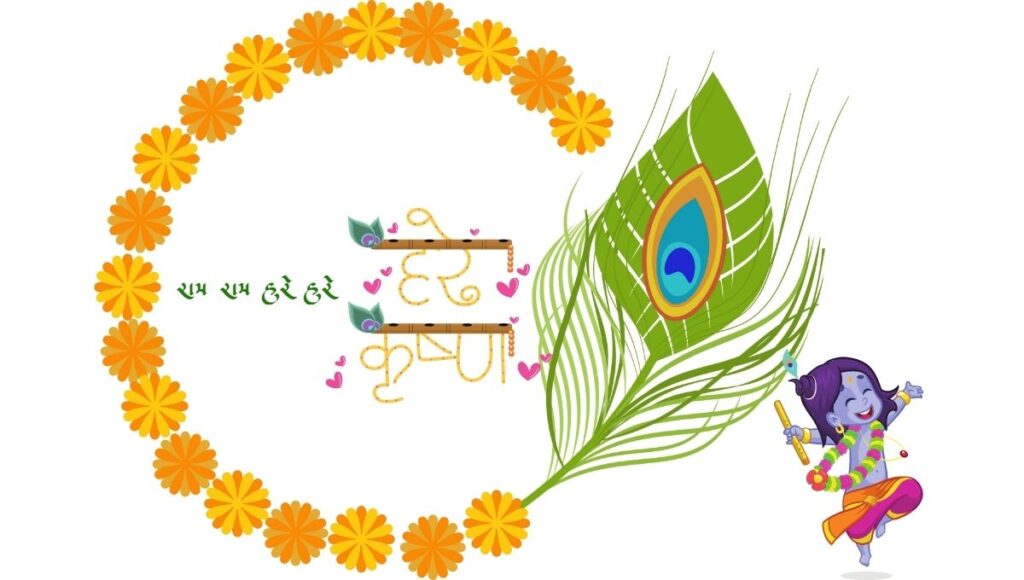
The tenth and final lesson that Bhagvad Geeta taught me is that I have a secret in life: to chant the holy name of God.
Bhagvad Geeta says:
“Always chanting My glories, endeavoring with great determination, bowing down before Me, these great souls perpetually worship Me with devotion.” (9.14)
This means that the easiest and most effective way to remember God, serve God, worship God, and love God is to chant His holy name. The holy name of God is not an ordinary sound or word, but a manifestation of God Himself. The holy name of God contains all the power and potency of God Himself.
By chanting the holy name of God, I can connect with Him directly and personally. By chanting the holy name of God, I can purify my mind and heart from all impurities and illusions. By chanting the holy name of God, I can awaken my dormant love for Him and experience His presence in my life.
This realization has given me a new sense of joy and ecstasy. It has made me realize that chanting the holy name of God is the simplest and sweetest way to express my love for Him and to receive His love for me. It has made me realize that chanting the holy name of God is the highest form of yoga or union with Him.
It has also freed me from the need and greed of material things and pleasures.
Bhagvad Geeta says:
“One who is thus transcendentally situated at once realizes the Supreme Brahman. He never laments nor desires to have anything; he is equally disposed to every living entity. In that state, he attains pure devotional service unto Me.” (18.54)
This means that if I chant the holy name of God, I will realize the supreme truth and reality, which is beyond the material world and its illusions. I will be free from the attachment and aversion to worldly things and people, which cause me sorrow and suffering. I will be equal and compassionate to all living beings, seeing them as parts and parcels of God.
I will attain pure devotional service or bhakti, which is the ultimate goal and perfection of life.
Conclusion
In this blog post, I have shared with you my personal story of how Bhagvad Geeta changed my life for the better. I have also shared with you the 10 powerful lessons that I learned from Bhagvad Geeta that can transform your life too.
These are:
- You are not your body or mind, but your eternal soul.
- You have a purpose in life: to do your duty without attachment to results.
- You have a choice in life: to act with wisdom or ignorance.
- You have a path in life: to follow your nature and your duty.
- You have a guide in life: your inner voice and your guru.
- You have a goal in life: to attain self-realization and God-realization.
- You have a method in life: to practice yoga or union with God.
- You have a way in life: to follow your own path according to your nature.
- You have a friend in life: God who loves you unconditionally.
- You have a secret in life: to chant the holy name of God.
I hope that by reading this blog post, you have gained some insight and inspiration for your own life. I hope that you will give Bhagvad Geeta a try or share your own experience with it. I hope that you will find happiness and peace in your life by following the teachings of Bhagvad Geeta.
Thank you for reading this blog post. If you liked it, please share it with your friends and family. If you have any questions or comments, please leave them below. I would love to hear from you.

May God bless you always! 🙏
FAQs
What is Bhagvad Geeta?
Bhagvad Geeta is one of the most sacred and influential scriptures in Hinduism. It is a dialogue between Lord Krishna and Arjuna, who is facing a dilemma of whether to fight or not in a war against his own relatives. Lord Krishna teaches Arjuna the essence of life, the nature of the self, the supreme reality, and the path of duty, action, devotion, and knowledge.
Who wrote Bhagvad Geeta?
Bhagvad Geeta is part of the epic Mahabharata, which was written by Sage Vyasa. However, some scholars believe that Bhagvad Geeta was composed by different authors over time.
When was Bhagvad Geeta written?
There is no definitive answer to this question, as different sources give different dates. Some estimate that Bhagvad Geeta was written between the 5th and 2nd century BCE, while others date it to the 1st or 2nd century CE.
How many chapters and verses are there in Bhagvad Geeta?
Bhagvad Geeta has 18 chapters and 700 verses.
How can I read Bhagvad Geeta?
There are many ways to read Bhagvad Geeta, such as:
- Reading the original Sanskrit text with a translation and commentary in your preferred language.
- Reading a simplified or modernized version of Bhagvad Geeta in your preferred language.
- Listening to an audio or video lecture or podcast on Bhagvad Geeta by a qualified teacher or speaker.
- Joining a study group or a course on Bhagvad Geeta with other like-minded people.
How can I apply Bhagvad Geeta in my life?
There are many ways to apply Bhagvad Geeta in your life, such as:
- Practicing the principles and values that Bhagvad Geeta teaches, such as duty, detachment, wisdom, devotion, etc.
- Performing your actions with the right attitude and intention, without being attached to the results or the rewards.
- Seeking guidance from your inner voice and your guru, who can help you understand and follow the teachings of Bhagvad Geeta.
- Chanting the holy name of God is the easiest and most effective way to remember Him, serve Him, worship Him, and love Him
